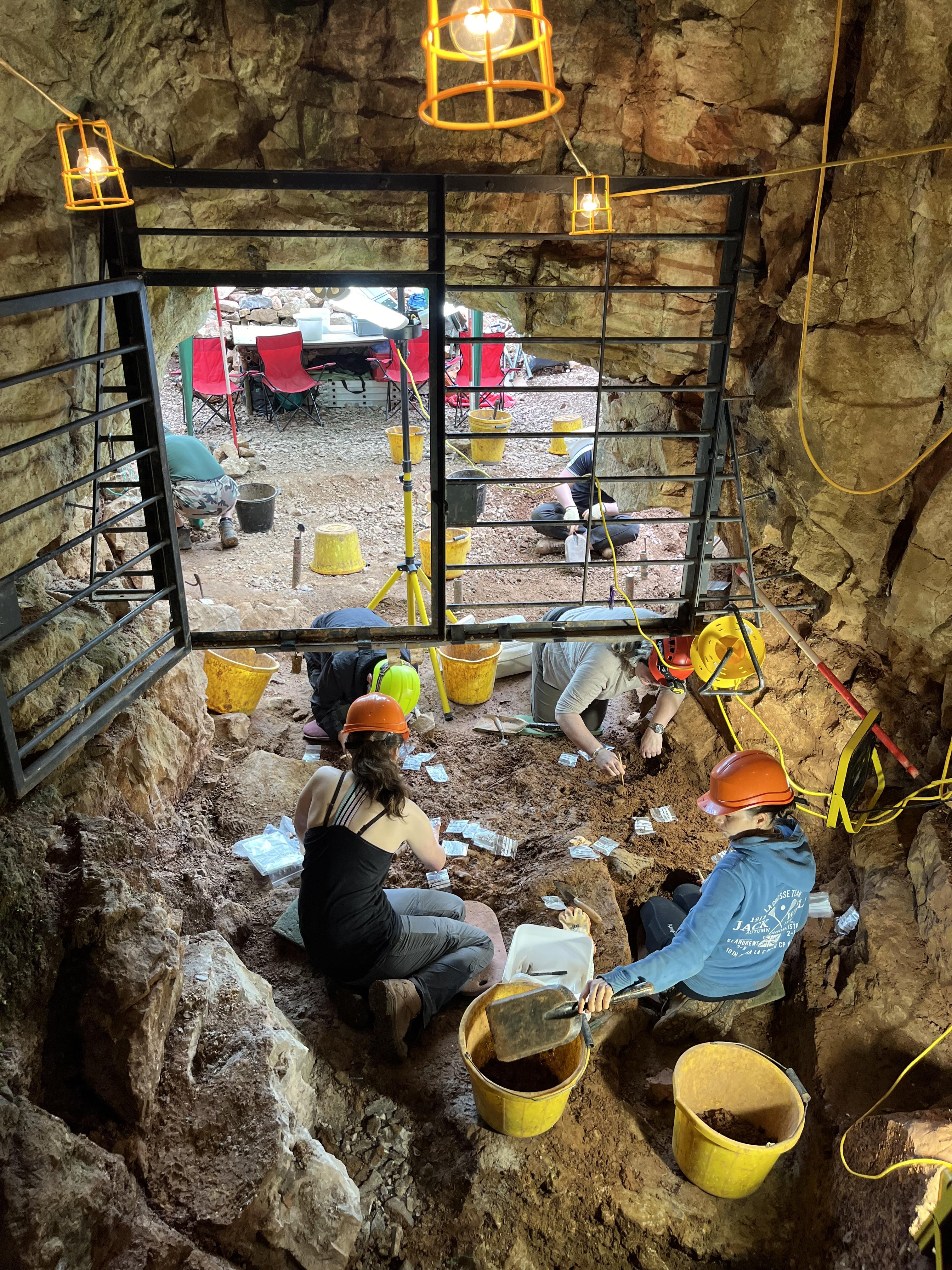Story

Story
Tucked away in the Mendip Hills of Somerset, Gully Cave is an extraordinary site that holds the key to understanding how animals coped with climate and environmental change over at least 70,000 years.
In a world where the climate and biodiversity crises present urgent challenges to humanity, these insights from the past are shedding new light on ecological resilience and helping to inform current species conservation and reintroduction strategies.
The future of life on earth depends on our ability to take action", Sir David Attenborough
Who we are
I'm Danielle Schreve, Professor and Heather Corrie Chair in Environmental Change at the University of Bristol, and together with my team, I have been excavating Gully Cave since 2006. We have been carefully uncovering, layer by layer, the story of the British fauna over the last Ice Age, recovering thousands of amazing fossils, including hyaenas, reindeer and woolly rhinos, as well as the tiny bones of birds, reptiles and small mammals. In the process, we are revealing how animals responded to abrupt climate change, addressing when and why some species went extinct and which ones survived. Recent highlights using evidence from Gully Cave include the identification of a new native species of vole in Britain, as well as contributing to a new model for conserving the endangered British wild cat. Every year, we make new discoveries!
Help the Gully Cave project grow
Gully Cave is the most important site of its kind in Britain but without formal grant funding, this vital research can continue only with your generous assistance.
By making a donation, you will be contributing to a unique project that is developing a new evidence base for the British fauna and deploying that knowledge to tackle modern conservation challenges.
Donations of any amount can be made and will go towards supporting a range of activities, including:
- our annual programme of fieldwork, which provides hands-on training for students and local volunteers,
- essential follow-up laboratory analyses, such as radiocarbon dating and ancient DNA analysis,
- cleaning, conserving and restoring the fossils, ready for future donation to a museum,
- maintaining an active programme of outreach and engagement with members of the public and conservation practitioners.
All donors will be listed (with consent) in publications to acknowledge your valuable support. Thank you so much for taking the time to visit this page. Please do share this campaign with others!
Donating through JustGiving is simple, fast and totally secure. Your details are safe with JustGiving - they'll never sell them on or send unwanted emails. Once you donate, they'll send your money directly to the charity. So it's the most efficient way to donate - saving time and cutting costs for the charity.
